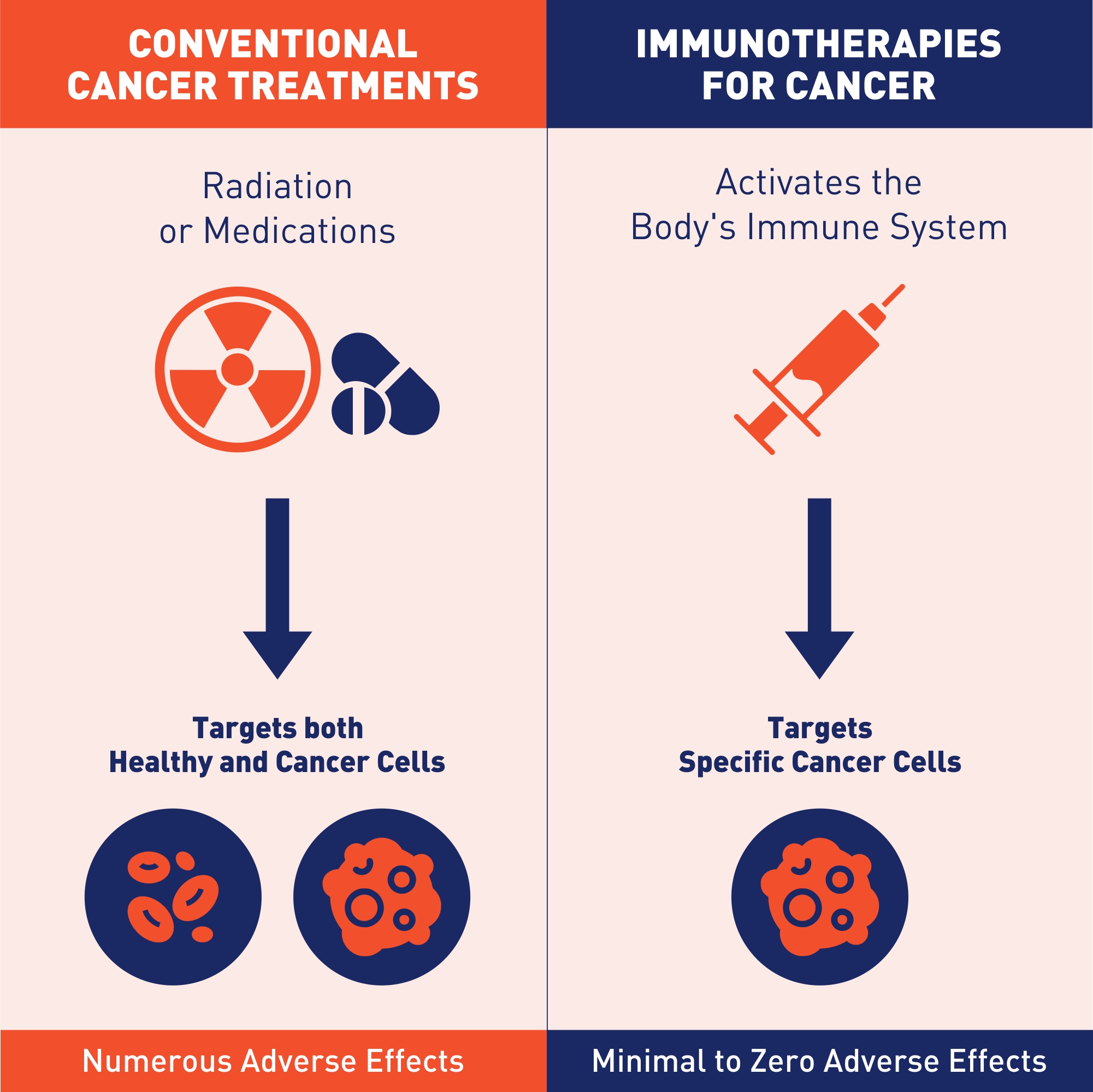
Unlocking the Potential of Immunotherapy in Cancer Treatment
Cancer, a formidable enemy, has long challenged the medical community. However, in recent years, a revolutionary approach has emerged known as immunotherapy. This cancer treatment harnesses the body’s immune system to combat cancer cells, offering new hope and possibilities in the fight against this disease.
Understanding Immunotherapy
Immunotherapy, also known as biological therapy, utilises the body’s natural defences to target and destroy cancer cells. Unlike traditional treatments such as chemotherapy and radiation, which directly attack cancer cells, immunotherapy enhances the immune system’s ability to recognise and eliminate tumours.
Types of Immunotherapy Used in Cancer Treatment
Immunotherapy encompasses various approaches, each adapted to target specific aspects of the immune response. Key types include immune checkpoint inhibitors, adoptive cell transfer, cytokine therapy, and monoclonal antibodies. Each modality offers unique advantages and applications in cancer treatment.
How does Immunotherapy Work?
At the forefront of immunotherapy are immune checkpoint inhibitors, which block inhibitory pathways that cancer cells exploit to evade detection by the immune system. By unleashing the body’s natural defences, these inhibitors enable immune cells to recognise and eliminate tumours effectively.

The Benefits of Immunotherapy in Oncology
Immunotherapy heralds a pattern shift in cancer treatment, offering several distinct advantages. Unlike traditional therapies, it often produces durable responses, with some patients experiencing long-term remission. Additionally, immunotherapy generally exhibits fewer side effects than conventional treatments, enhancing the quality of life for patients.

Challenges and Limitations of Immunotherapy
Despite its remarkable promise, immunotherapy faces challenges and limitations. Not all patients respond to treatment, and even among responders, resistance may develop over time. Furthermore, immunotherapy can trigger immune-related adverse events, necessitating close monitoring and management.
Below is an excerpt from the National Library of Medicine
The Future of Immunotherapy in Medical Oncology
The future of immunotherapy holds immense potential for further advancements. Research efforts continue to refine existing therapies and develop novel approaches, such as personalised immunotherapy tailored to individual patients’ immune profiles. Biomarkers play a crucial role in predicting treatment response and guiding personalised treatment strategies.
Patient Eligibility for Immunotherapy
Determining patient eligibility for immunotherapy involves assessing various factors, including cancer type, stage, and overall health. Biomarker testing, such as PD-L1 expression, helps identify patients most likely to benefit from immune checkpoint inhibitors. Additionally, ongoing clinical trials explore immunotherapy’s efficacy across diverse patient populations.
Combining Immunotherapy with Other Cancer Treatments
Combination therapies, integrating immunotherapy with conventional treatments or other targeted therapies, hold promise for enhancing treatment outcomes. Mutual effects may improve response rates and overcome resistance mechanisms, offering new avenues for optimising cancer care.
Immunotherapy represents a transformative approach to cancer treatment, offering unprecedented opportunities for improved outcomes and enhanced quality of life. While challenges persist, ongoing research and innovation continue to propel the field forward, driving towards a future where personalised immunotherapy is the cornerstone of oncology care.
As the landscape of cancer treatment evolves, it is imperative to stay informed and advocate for access to therapies like immunotherapy. Collaborating with CBCC can provide patients with advanced options that may not be widely available elsewhere. Choosing a facility like CBCC ensures that you are making the right choice for treatment, putting you on the path to the best possible care and outcome.


